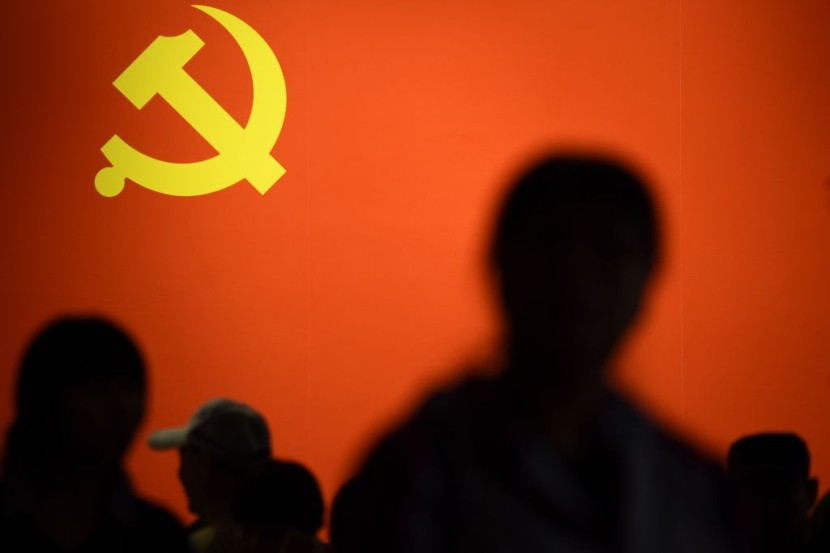
President Joe Biden's administration said Thursday that the United States will hold official trade discussions with the Taiwanese government this fall.
The declaration prompted China to issue another round of threats and condemnations, warning that it will protect its sovereignty. China has always claimed Taiwan as its territory, despite the island having its government.
China Tensions Grow as US, Taiwan Move With Trade Talks
Tensions in the area have risen this year as US legislators continue to visit Taiwan to express their support. House Speaker Nancy Pelosi was the highest-ranking US official to visit the island since Speaker Newt Gingrich in 1997. China claims the trips violate One China Policy, which states that the US will not maintain formal diplomatic ties with Taiwan and that the US recognizes the government of mainland China as its legitimate government.
Taiwan broke away from China in 1949 when pro-democracy forces were defeated in a civil war by the Chinese Communist Party. Since then, the island has been self-governed as a democracy, although it maintains billions of dollars in commercial links with the mainland.
Taiwan has substantial commercial relations with the United States, as it is a major manufacturer of computer chips. Taiwan is the US's ninth-largest trading partner, accounting for $90.6 billion in total goods trade per year. In recent weeks, China has intensified its threats to capture the island by force. Following Pelosi's visit, the Chinese military seemed to mimic an invasion of the island, with navy and air troops conducting live-fire drills around Taiwan.
China continued such drills this week after another party of legislators, led by Massachusetts Senator Ed Markey, visited the island. Reps. John Garamendi, D-Calif., Alan Lowenthal, D-Calif., Don Beyer, D-Va., and Amata Radewagen, R-AS were among the five members of Congress, Fox News reported.
China's reaction to US House Speaker Nancy Pelosi's visit to Taiwan was anything from subtle, with warships and military planes dispatched to all sides of the self-governing island democracy, and ballistic missiles fired into adjacent waters. The dust has yet to settle, with Taiwan conducting its drills this week and Beijing promising further moves, but analysts believe a lot can already be gained from what China has done, and has not done, so far.
China will also learn about its military capabilities from the drills, which more closely mimicked a genuine strike on the island Beijing claims as its territory, as well as the American and Taiwanese responses. During the nearly weeklong maneuvers that followed Pelosi's early August visit, China sailed ships and flew aircraft across the median line in the Taiwan Strait, claiming the de facto boundary did not exist, fired missiles over Taiwan, and challenged established norms by firing missiles into Japan's exclusive economic zone, as per US News.
China Announces New Round of Military Drills
Beijing, which has traditionally claimed sovereignty over Taiwan, has accused Washington of breaking US-China policy toward the island republic while also advocating for its independence. After five congressmen visited Taiwan the day before, the Chinese government planned an additional round of military maneuvers surrounding the island on Monday.
The military drills were termed by the Defense Ministry as a resolute response and serious deterrent against collaboration and provocation between the US and Taiwan. China began military exercises earlier this month in reaction to Pelosi's travel to Taipei. Despite the heightened threats, top US officials have consistently stated that the US position toward Taiwan remains unchanged.
For years, the United States has pursued a strategy of strategic ambiguity toward the country, recognizing China's claim to power but opposing it, as well as opposing Taiwan's independence. As Beijing has spoken out against US-Taiwan commercial relations, tensions may rise further in the coming weeks.
China will take firm steps to protect its national sovereignty and territorial integrity. "We encourage the United States to cease making mistakes," said Wang Wenbin, a spokeswoman for China's Foreign Ministry, according to the New York Post.
Related Article : Kim Jong Un Allegedly Relies on Drug Injections To Hide Health Issues Amid Pyongyang's Dilemma on US-South's Looming Military Drills
@YouTube
© 2025 HNGN, All rights reserved. Do not reproduce without permission.








